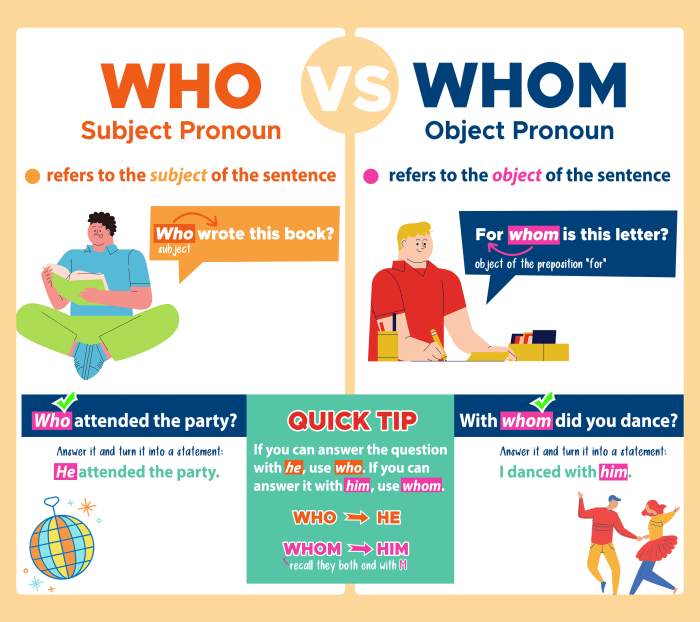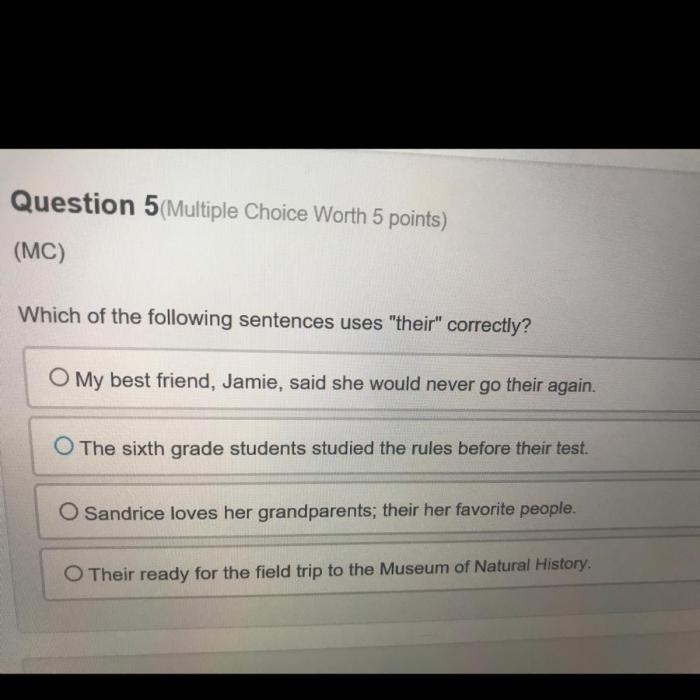Which of the following sentences uses who or whom correctly – Which of the following sentences uses “who” or “whom” correctly? This question sparks a journey into the realm of grammar, where the intricacies of language unravel. Embark on this linguistic adventure as we delve into the nuances of “who” and “whom,” exploring their proper usage and unveiling the secrets of grammatical precision.
Join us as we uncover the grammatical rules governing “who” and “whom,” unraveling the mysteries behind their correct application. Witness the transformation from common mistakes to impeccable usage as we illuminate the path towards linguistic mastery.
Usage of “Who” and “Whom”

In English grammar, “who” and “whom” are relative pronouns used to refer to people. “Who” is used as the subject of a clause, while “whom” is used as the object of a verb or preposition.
The following rules govern the usage of “who” and “whom”:
- Use “who” when it refers to the subject of a clause.
- Use “whom” when it refers to the object of a verb or preposition.
For example:
- Who is the president of the United States?
- The person whom I spoke to was very helpful.
FAQ Summary: Which Of The Following Sentences Uses Who Or Whom Correctly
What is the difference between “who” and “whom”?
“Who” is used as a subject pronoun, while “whom” is used as an object pronoun.
When should I use “who”?
Use “who” when the pronoun is performing the action of the verb.
When should I use “whom”?
Use “whom” when the pronoun is receiving the action of the verb.


